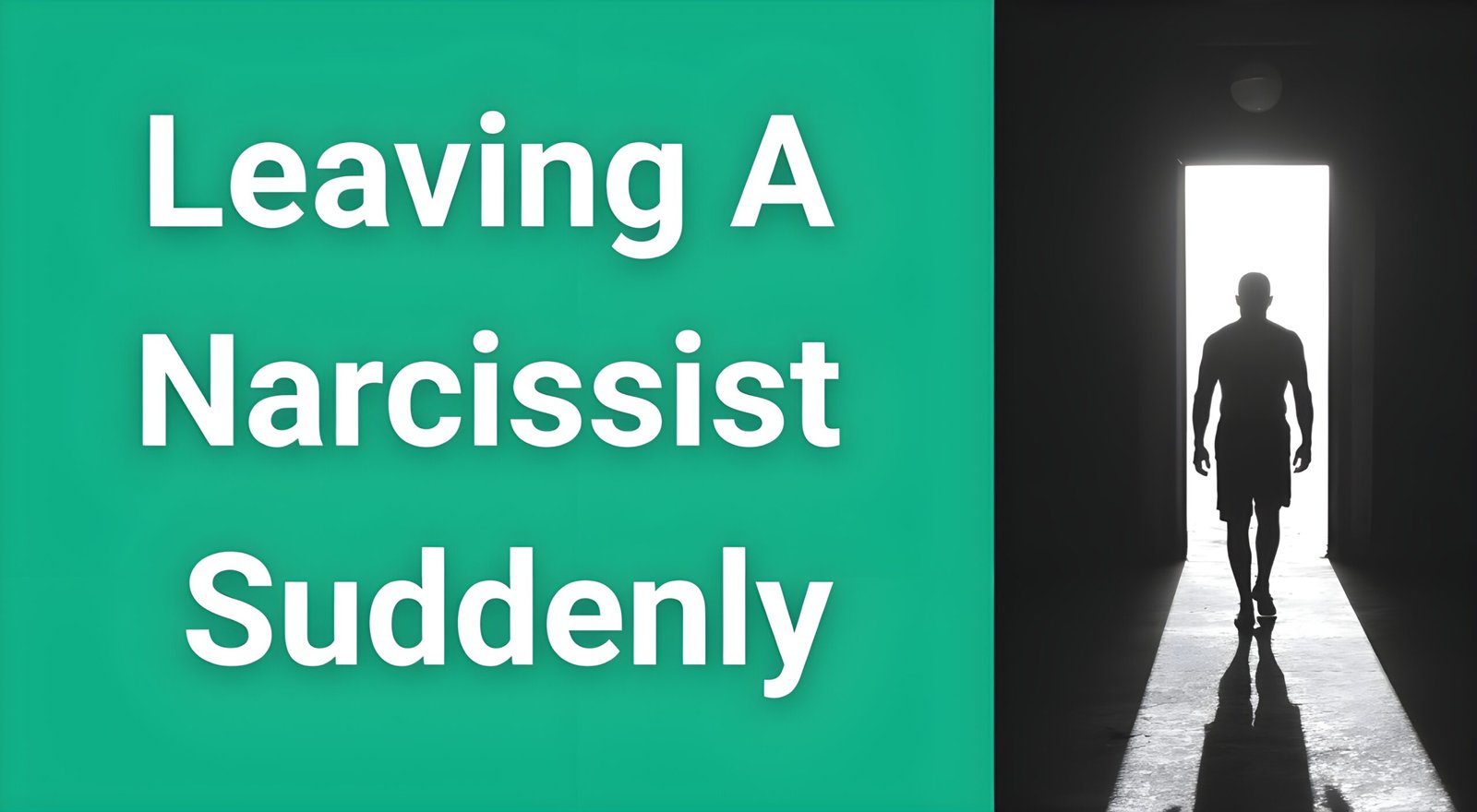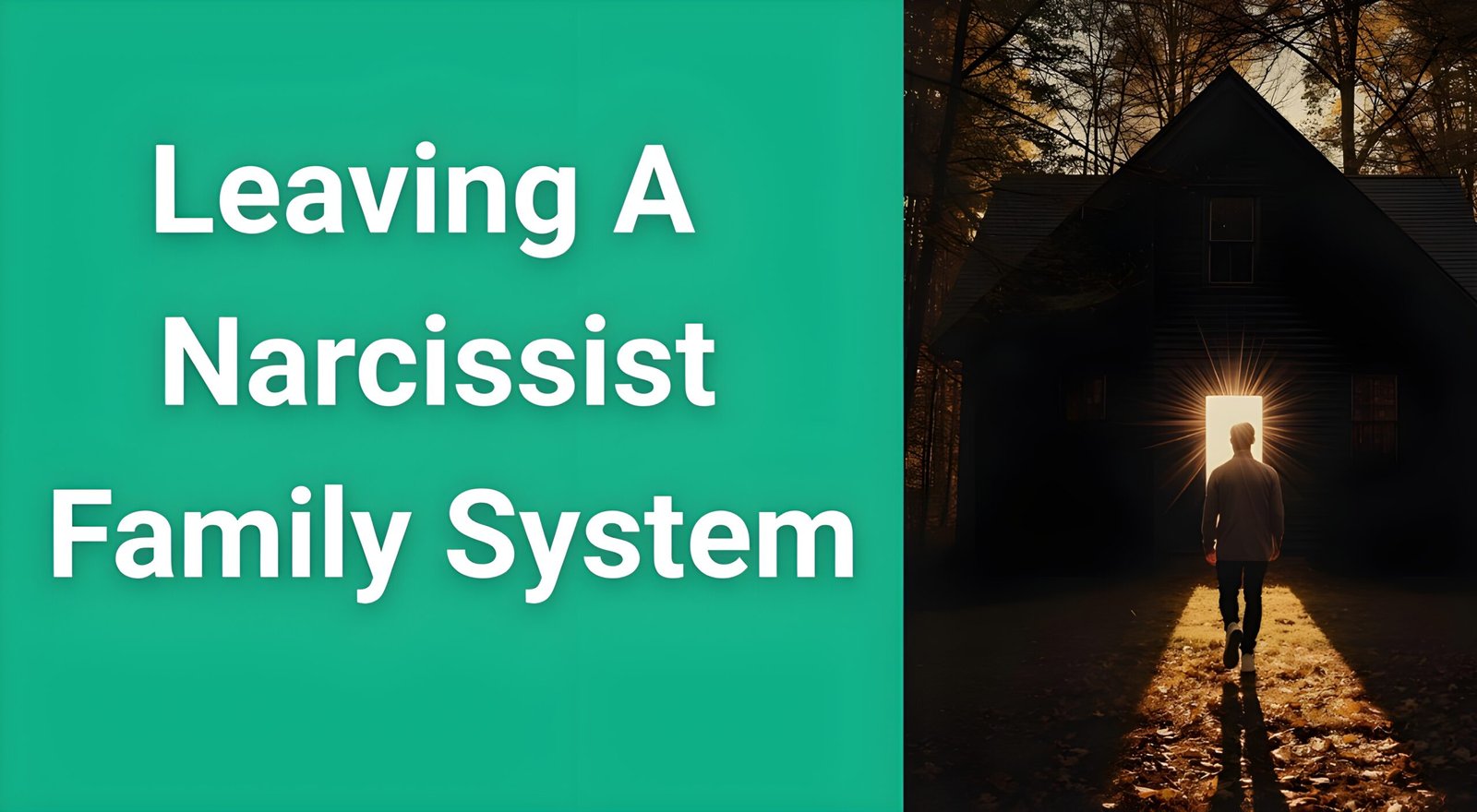The moment you realize you’re carrying the child of someone who systematically destroys your self-worth, a cold terror washes over you. Leaving a narcissist while pregnant feels like trying to escape quicksand while carrying precious cargo. You’re not just protecting yourself anymore – there’s an innocent life depending on your courage to break free.
- The Reality of Narcissistic Abuse During Pregnancy
- Recognizing When It’s Time to Leave
- Creating Your Safety Plan: The Foundation of Freedom
- Legal Protections for You and Your Baby
- Managing the Emotional Roller Coaster
- Breaking the Trauma Bond During Pregnancy
- Practical Steps for Independent Living
- Preparing for Life as a Single Mother
- Co-Parenting with a Narcissist (When Unavoidable)
- Warning Signs and Red Flags During Separation
- Building Your Future: Life After Narcissistic Abuse
- Frequently Asked Questions
- Conclusion: Your Courage Creates Your Child’s Future
If you’re reading this at 3 AM, questioning your sanity while your partner sleeps peacefully after another episode of emotional warfare, know this: you’re not crazy, you’re not overreacting, and most importantly – you’re not trapped forever.
This survival guide will walk you through the complex process of safely extracting yourself and your unborn child from a narcissistic relationship. Every step outlined here has helped thousands of women reclaim their lives and protect their babies from generational trauma.
The Reality of Narcissistic Abuse During Pregnancy
Pregnancy should be a time of joy, anticipation, and gentle care. Instead, you find yourself walking on eggshells, managing someone else’s emotions, and questioning whether this treatment is normal. Spoiler alert: it’s not.
How Narcissistic Abuse Escalates During Pregnancy
Narcissists often view pregnancy as the ultimate control mechanism. Your vulnerable state becomes their playground for manipulation. The abuse typically intensifies in these ways:
Increased Isolation: They systematically cut you off from family and friends who might offer perspective or support. “You don’t need them anymore – you have me and the baby.”
Financial Control: Suddenly, they have opinions about every purchase, monitor bank accounts obsessively, or make unilateral decisions about maternity leave and benefits.
Medical Manipulation: They might skip important appointments, contradict medical advice, or make pregnancy decisions that serve their needs rather than yours or the baby’s health.
Emotional Terrorism: The silent treatments become longer, the gaslighting more intense, and the verbal assaults more creative. They know you feel trapped by the pregnancy.
Competition with the Unborn Child: Perhaps most disturbing, many narcissists begin competing with the baby for attention before birth, treating your natural maternal instincts as betrayal.
The Physical and Psychological Impact
The stress of narcissistic abuse during pregnancy isn’t just emotionally draining – it’s medically dangerous. Research shows that chronic stress during pregnancy increases risks of:
- Gestational diabetes
- High blood pressure and preeclampsia
- Preterm labor and low birth weight
- Postpartum depression and anxiety
- Disrupted mother-child bonding
Your body is trying to create a safe environment for your growing baby while simultaneously being flooded with stress hormones from emotional abuse. Something has to give, and it shouldn’t be your sanity or your child’s wellbeing.
Recognizing When It’s Time to Leave
Many women struggle with the decision to leave a narcissist while pregnant because society glorifies “keeping the family together.” But staying in an abusive relationship doesn’t preserve a family – it destroys one.
Warning Signs That Demand Immediate Action
Physical Threats or Violence: Any physical aggression toward you automatically endangers your pregnancy. Even pushing, grabbing, or “playful” hitting crosses the line.
Sabotaging Your Health: Hiding prenatal vitamins, preventing medical appointments, or pressuring you to make harmful choices shows they prioritize control over your baby’s wellbeing.
Severe Financial Abuse: Preventing access to money for basic needs, medical care, or baby preparations puts both of you at risk.
Threatening the Baby: Any suggestion they might harm, abandon, or use the child as a weapon against you requires immediate safety planning.
Complete Isolation: If you have no one left to call for help, they’ve successfully created a dangerous dependency.
The “But What About My Child’s Father?” Question
This might be the hardest truth to accept: a narcissistic father is often worse than an absent one. Children of narcissists frequently suffer from:
- Anxiety and depression
- Low self-esteem and identity issues
- Difficulty forming healthy relationships
- Higher likelihood of accepting abuse as normal
- Academic and behavioral problems
Your child deserves to grow up seeing what healthy love looks like, not learning that manipulation and emotional warfare are normal relationship dynamics.
Creating Your Safety Plan: The Foundation of Freedom
Leaving a narcissist while pregnant requires more strategic planning than leaving a healthy relationship. Your safety plan becomes your roadmap to freedom.
Phase 1: Silent Preparation (Do This First)
Document Everything: Start keeping a private record of abusive incidents. Use cloud storage they can’t access or email details to a trusted friend. Include dates, specific behaviors, and any witnesses.
Secure Important Documents: Make copies of:
- Birth certificate and Social Security card
- Driver’s license and passport
- Insurance cards and medical records
- Bank statements and credit reports
- Marriage certificate (if applicable)
- Prenatal records and due date information
Create a Secret Communication Channel: Set up an email account they don’t know about. Use it to research resources, connect with support services, and maintain contact with your support network.
Identify Safe Locations: Research domestic violence shelters in your area, especially those with programs for pregnant women. Know the addresses and contact information by heart.
Phase 2: Building Your Support Network
Professional Support: Connect with domestic violence advocates who understand narcissistic abuse patterns. Many organizations offer specialized services for pregnant women.
Medical Team: Inform your healthcare provider about your situation. They can provide additional resources and documentation if needed for legal proceedings.
Legal Consultation: Many lawyers offer free consultations for domestic violence cases. Understanding your rights regarding custody, support, and protection orders is crucial.
Financial Planning: Research assistance programs for single mothers, temporary housing aid, and healthcare coverage options. Many areas have specific resources for women leaving abusive relationships.
Phase 3: The Exit Strategy
Choose Your Timing: If possible, leave when they’re away for an extended period. However, don’t wait for the “perfect” moment if you’re in immediate danger.
Pack Smart: Prepare a bag with essentials for yourself and baby supplies. Keep it somewhere they won’t find it. Include medications, phone chargers, cash, and comfort items.
Transportation Plan: Arrange reliable transportation that doesn’t depend on them. This might mean asking a friend, calling a domestic violence hotline for transport assistance, or using rideshare services.
Communication Cutoff: Be prepared to go no-contact immediately. Block numbers, change passwords, and alert your support network that you’ve made the move.
Legal Protections for You and Your Baby
Understanding your legal options empowers you to make informed decisions about protecting yourself and your child.
Restraining Orders and Protection Orders
A protection order can legally require your abuser to:
- Stay away from you and your residence
- Avoid your workplace and other locations you frequent
- Stop all contact, including through third parties
- Surrender weapons if domestic violence is involved
- Pay temporary support during proceedings
Document incidents thoroughly to strengthen your case. Many courts now recognize emotional abuse and financial control as valid grounds for protection orders.
Custody Considerations During Pregnancy
Many women fear that leaving will hurt their custody case, but the opposite is often true. Courts increasingly recognize that protecting yourself from abuse demonstrates good parenting judgment.
Establish a Paper Trail: Your documentation of abuse becomes crucial evidence in custody proceedings. Include medical records showing stress-related pregnancy complications.
Seek Supervised Visitation: If the narcissistic partner has a history of manipulation or threats, request that any future visitation be supervised by court-appointed professionals.
Parental Rights: In most states, unmarried fathers must establish paternity to gain custody rights. This can provide additional protection time during your pregnancy.
Managing the Emotional Roller Coaster
Leaving a narcissist while pregnant triggers an intense emotional storm. Understanding what you’re experiencing helps you navigate these feelings without losing your resolve.
Trauma Bonding During Pregnancy
The intermittent reinforcement of narcissistic abuse creates powerful trauma bonds – psychological attachments that feel like love but function like addiction. Pregnancy hormones can intensify these bonds, making leaving feel impossible even when you know it’s necessary.
Signs you’re trauma bonded include:
- Obsessively checking their social media
- Making excuses for their behavior to others
- Feeling physically ill when considering leaving
- Believing you can “fix” them or the relationship
- Cycling between love and terror
Understanding that these feelings result from psychological conditioning, not true love, helps you make decisions based on logic rather than manufactured emotions.
Grief and Guilt Management
You’re not just grieving the end of a relationship – you’re mourning the family you imagined, the father you hoped they’d become, and the fairytale you believed was possible.
Acknowledge the Loss: It’s normal to grieve even healthy departures from unhealthy situations. Let yourself feel sad while maintaining your commitment to safety.
Challenge Guilt Messages: Narcissists are masters at implanting guilt. Remember: you’re not “breaking up the family” – you’re preventing your child from growing up in a war zone.
Focus on Your Child’s Future: When guilt overwhelms you, visualize your child growing up confident, secure, and loved. This isn’t about denying them a father – it’s about providing them with a healthy mother.
Professional Support During Transition
The period immediately following your departure is crucial for establishing new patterns and preventing the trauma bonding from pulling you back.
Sometimes, making sense of the chaos requires professional perspective. If you find yourself questioning whether the abuse was “real enough” to justify leaving, or if you’re struggling to understand the complex manipulation tactics you experienced, consider getting an expert analysis of your situation.
A comprehensive evaluation can help you understand exactly what you’ve been through, why certain behaviors affected you so deeply, and what patterns to watch for in future relationships. This clarity becomes especially important when you’re dealing with custody arrangements or co-parenting decisions.
Many women find that having their experiences validated by someone who specializes in narcissistic abuse patterns provides the confidence needed to maintain boundaries and make decisions that prioritize their child’s wellbeing.
Breaking the Trauma Bond During Pregnancy
The neurological addiction created by narcissistic abuse doesn’t disappear the moment you decide to leave. Breaking these bonds while pregnant requires specific strategies that account for hormonal changes and physical limitations.
Understanding the Addiction Process
Trauma bonding functions like drug addiction in your brain. The cycle of tension, abuse, and temporary relief creates powerful neural pathways that make leaving feel like withdrawal. During pregnancy, hormonal changes can intensify these feelings.
The Dopamine Connection: The unpredictable nature of narcissistic “love” creates intermittent reinforcement – the most addictive reward schedule known to psychology. Your brain literally craves their attention, even when that attention is harmful.
Pregnancy Hormones: Oxytocin and other bonding hormones designed to attach you to your baby can also strengthen trauma bonds to your abuser. Understanding this helps you recognize that intense attachment feelings may not reflect reality.
Daily Practices for Bond-Breaking
Morning Grounding: Start each day by writing three facts about your situation. Example: “I deserve respect. My baby deserves a peaceful environment. Abuse is not love.”
Reality Testing: When you miss them or remember “good times,” immediately write down three abusive incidents. Keep this list on your phone for moments of weakness.
Physical Detox: Engage in pregnancy-safe activities that naturally boost endorphins: walking, prenatal yoga, warm baths, or listening to calming music.
If you’re struggling with the compulsive urges to contact your abusive partner, obsessive thoughts about them, or the physical discomfort that feels like withdrawal, you might benefit from a structured approach to breaking trauma bonds.
Many women find success with systematic, science-based methods that address the neurological aspects of trauma bonding. These approaches work with your brain chemistry rather than relying on willpower alone, which is especially important during pregnancy when hormones can intensify addictive patterns.
A day-by-day system can provide the structure needed to rewire your brain’s response to the abuser while building new, healthy neural pathways focused on your wellbeing and your baby’s future.
Practical Steps for Independent Living
Moving from dependency to independence while pregnant requires addressing multiple practical concerns simultaneously.
Financial Independence Strategies
Emergency Funds: Open a bank account in your name only. Even saving small amounts creates psychological momentum toward independence.
Income Planning: Research work-from-home opportunities, part-time positions with childcare benefits, or skills-based freelancing you can do around pregnancy and early motherhood.
Government Assistance: Apply for programs you’re entitled to: WIC, SNAP, Medicaid, and temporary housing assistance. These aren’t charity – they’re investments in your child’s wellbeing.
Support Networks: Connect with organizations that specifically help women leave abusive relationships. Many offer financial counseling, job placement assistance, and emergency funds.
Housing Solutions
Transitional Housing: Many domestic violence shelters offer transitional housing programs lasting 6-24 months. These provide stability while you establish independence.
Shared Housing: Consider arrangements with other single mothers or supportive roommates. Many areas have networks specifically for women in similar situations.
Family Support: If you have family members who can provide temporary housing, create clear boundaries and timelines to prevent dependency patterns.
Healthcare Continuity
Insurance Transition: Understand your healthcare coverage options after leaving. Many domestic violence survivors qualify for emergency Medicaid or other coverage.
Medical Record Transfer: Ensure your prenatal care continues uninterrupted. Your healthcare provider can help facilitate transfers if you need to change providers for safety reasons.
Mental Health Support: Prioritize counseling services that specialize in trauma recovery during pregnancy. Many areas offer free or sliding-scale services.
Preparing for Life as a Single Mother
The transition from abusive relationship to single motherhood while pregnant involves reshaping your entire identity and future vision.
Identity Rebuilding
Rediscovering Yourself: Narcissistic abuse erodes your sense of self. Pregnancy offers a unique opportunity to rebuild your identity around protecting and nurturing your child.
Values Clarification: What kind of environment do you want your child to grow up in? Use this vision to guide decisions about boundaries, relationships, and lifestyle choices.
Strength Recognition: You’re already demonstrating incredible courage by considering leaving. Recognize this strength – it will sustain you through difficult moments ahead.
Creating New Traditions
Healthy Routines: Establish daily and weekly routines that center around your wellbeing and preparation for motherhood. These create stability and positive anticipation.
Support Rituals: Regular check-ins with trusted friends, therapy appointments, or support group meetings become anchors in your new life.
Future Planning: Set small, achievable goals for your post-baby life. Having something to work toward creates hope during difficult transition periods.
Building Your Village
The saying “it takes a village to raise a child” becomes literal when you’re preparing to leave an abusive relationship. Your village might include:
- Domestic violence counselors who understand your specific situation
- Healthcare providers who support your decisions
- Legal advocates who protect your rights
- Other survivors who share their wisdom
- Family and friends who respect your boundaries
- Community organizations that offer practical support
Sometimes, the most important member of your village is a professional who can help you understand exactly what you’ve experienced and what to expect as you build your new life. Having someone analyze your specific situation, predict potential challenges, and provide a roadmap for protection can be invaluable during this transition.
Many women find that when they’re making such life-altering decisions, having expert perspective on their situation provides the clarity and confidence needed to follow through with their plans.
Co-Parenting with a Narcissist (When Unavoidable)
If the narcissist is legally established as your child’s father, you’ll need strategies for protecting both yourself and your child during necessary interactions.
Communication Boundaries
Written Communication Only: Use email or co-parenting apps that document all exchanges. This protects you from gaslighting and provides evidence if needed.
Business-Like Tone: Keep all communication focused on the child’s needs. Avoid personal topics, emotional responses, or detailed explanations.
Information Diet: Share only essential information about your child. Too much information becomes ammunition for manipulation.
Protecting Your Child
Age-Appropriate Truth: As your child grows, they’ll need honest but gentle explanations about their father’s behavior without creating fear or hatred.
Consistent Boundaries: Maintain the same protective boundaries regardless of the narcissist’s current behavior. Consistency prevents confusion and manipulation.
Professional Support: Consider family therapy with someone who understands narcissistic abuse patterns to help navigate complex co-parenting situations.
Long-Term Protection Strategies
Documentation: Continue documenting problematic behaviors even after separation. Patterns of narcissistic behavior often escalate around custody issues.
Legal Preparedness: Maintain relationships with legal advocates who understand your situation in case modifications to custody arrangements become necessary.
Support Network: Keep your support network informed about co-parenting challenges. Having witnesses to concerning behavior strengthens your protective position.
If you find yourself struggling to maintain boundaries during co-parenting interactions, or if you feel yourself being drawn back into old patterns of trying to manage the narcissist’s emotions, consider resources specifically designed for navigating relationships you cannot fully escape.
Sometimes the reality is that you cannot leave entirely – shared children create permanent connections that require different survival strategies than complete no-contact. Learning how to protect yourself and your children while maintaining necessary contact requires specialized approaches that address the unique challenges of ongoing interaction with a narcissistic individual.
Warning Signs and Red Flags During Separation
Leaving a narcissist often triggers escalation in their behavior. Being prepared for these responses keeps you and your baby safer.
Typical Narcissist Responses to Abandonment
Love Bombing: Sudden gifts, promises to change, and excessive attention designed to draw you back. Remember: this is manipulation, not genuine transformation.
Smear Campaigns: They may tell family, friends, or coworkers lies about you to damage your reputation and isolate you from support.
Legal Threats: Using the court system to harass you through custody disputes, false accusations, or frivolous lawsuits.
Financial Retaliation: Hiding assets, refusing support payments, or sabotaging your employment if they have that power.
Stalking Behaviors: Following you, monitoring your activities, or using technology to track your movements.
Protective Responses
Document Everything: Screenshot threatening messages, keep voicemails, and maintain detailed records of all concerning behaviors.
Involve Authorities: Don’t hesitate to contact police for stalking or threatening behavior. Each report creates a paper trail that strengthens your case.
Technology Security: Change all passwords, enable two-factor authentication, and consider getting a new phone number they don’t know.
Inform Your Network: Tell trusted friends, family, employers, and your child’s school about your situation so they can help protect you.
Building Your Future: Life After Narcissistic Abuse
The journey from abuse to freedom doesn’t end when you leave – it transforms into the work of building the life you and your child deserve.
Healing During Pregnancy and Beyond
Trauma-Informed Care: Seek healthcare providers who understand how trauma affects pregnancy, birth, and early motherhood.
Somatic Healing: Your body holds trauma memories. Pregnancy-safe practices like gentle yoga, massage, and breathwork help release stored tension.
Emotional Processing: Allow yourself to feel the full range of emotions without judgment. Grief, anger, relief, and fear can coexist during this transition.
Creating Safety and Stability
Routine and Predictability: Establishing consistent daily routines helps your nervous system settle after chronic hypervigilance.
Physical Safety: Ensure your new living situation provides genuine security. This might mean changing locks, installing security systems, or choosing locations your abuser doesn’t know.
Emotional Safety: Surround yourself with people who support your healing rather than questioning your decisions or minimizing your experiences.
Preparing for Motherhood
Attachment Building: Practice connecting with your baby through prenatal bonding activities. This helps heal the disruption caused by chronic stress.
Birth Planning: Create birth preferences that prioritize your sense of safety and control. Consider who you want present and communicate your needs clearly to medical staff.
Postpartum Preparation: Line up support for after birth, including people who can help with practical needs and emotional support during the vulnerable postpartum period.
Frequently Asked Questions
Q: Is it safe to leave a narcissist while pregnant?
A: Staying in an abusive relationship during pregnancy often poses greater risks to both you and your baby than leaving safely with proper planning and support.
Q: Will leaving hurt my custody case?
A: Courts increasingly recognize that protecting yourself from abuse demonstrates good parenting judgment. Document the abuse and work with legal advocates who understand these dynamics.
Q: How do I handle the guilt of “breaking up the family”?
A: You’re not breaking up a family – you’re preventing your child from growing up believing that abuse is normal in relationships. Healthy families don’t include abuse.
Q: What if I can’t afford to leave?
A: Numerous resources exist for women leaving abusive relationships, including emergency housing, financial assistance, legal aid, and healthcare coverage. Start by contacting your local domestic violence hotline.
Q: How do I know if I’m making the right decision?
A: If you’re questioning whether abuse is “bad enough” to justify leaving, it probably is. Trust your instincts – they’re trying to protect both you and your baby.
Q: What if they threaten to take the baby?
A: Document all threats and work with legal advocates immediately. Threatening to use a child as a weapon is itself a form of abuse that courts take seriously.
Q: How do I rebuild my life as a single mother?
A: Focus on one step at a time. Connect with support services, prioritize your and your baby’s safety and health, and remember that thousands of women have successfully made this transition.
Q: Will my child be okay without their father?
A: Children thrive in peaceful, loving environments. Growing up with an abusive father often causes more psychological damage than growing up in a single-parent home with a healthy mother.
Conclusion: Your Courage Creates Your Child’s Future
Leaving a narcissist while pregnant requires extraordinary courage, but you’ve already demonstrated that courage by recognizing the abuse and seeking information about your options. Every day you spend researching, planning, and building support networks is an investment in both your future and your child’s wellbeing.
Your decision to leave isn’t just about escaping a toxic relationship – it’s about breaking generational cycles of abuse. You’re teaching your child that love doesn’t include manipulation, that relationships should feel safe, and that their worth isn’t dependent on managing someone else’s emotions.
The path ahead isn’t easy, but it leads to freedom, peace, and the opportunity to mother your child without constant fear and hypervigilance. You deserve to experience pregnancy and motherhood as the joy they’re meant to be, not as survival experiences to endure.
Remember that healing isn’t linear, progress isn’t always visible, and asking for help isn’t weakness – it’s wisdom. Your child’s first lesson in self-worth comes from watching how you treat yourself. By choosing to leave an abusive situation, you’re already teaching them that they deserve better.
You’re stronger than you know, more capable than you’ve been allowed to believe, and worthy of the peaceful life you’re working to create. Your baby is lucky to have someone willing to make such difficult choices to protect them before they’re even born.
The future you’re building – free from manipulation, gaslighting, and emotional terrorism – is the greatest gift you can give your child. Trust your instincts, lean on your support network, and take it one day at a time.
Freedom is waiting on the other side of fear, and you have everything you need to get there.






